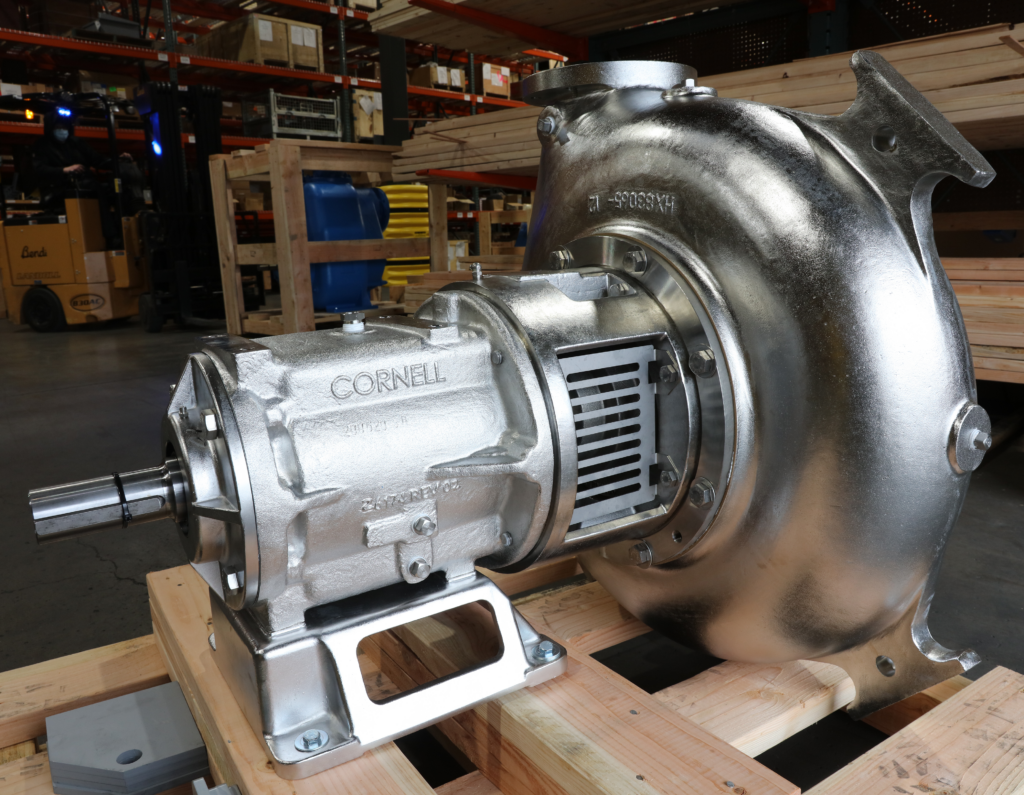- Superior Corrosion Resistance
Food processing environments expose equipment to water, cleaning agents, and acidic or salty ingredients that can lead to corrosion. 304 stainless steel offers excellent corrosion resistance, ensuring longer equipment life and reducing maintenance costs. Unlike cast iron, 304 stainless steel resists rust and pitting, making it an optimal choice for pumps, piping, and other food processing components. - Easy to Clean, Food Safety Compliant
Cleanliness is essential in food processing, and 304 stainless steel’s smooth, non-porous surface makes it easy to wash down and sanitize. Electro-polished finishes further enhance cleanliness, eliminating crevices that can harbor bacteria. This ensures compliance with strict food safety standards and supports the production of safe, high-quality food. - High Strength and Durability
Equipment in food plants must withstand demanding operating conditions. 304 stainless steel offers tensile strength approximately 150% greater than cast iron, providing better wear and durability. This makes it well-suited for handling tough food processing tasks, such as moving whole or processed foods, while maintaining reliable performance. - Proven Performance with Patented Technologies
Cornell’s 304SS hydro-transport pumps are a prime example, featuring the patented Cycloseal® system that removes grit and extends seal life without an external flush line. Offset volutes and single port impellers further protect food products during processing, reducing damage and abrasion. - Cost-Effective Alternative to 316 Stainless Steel
While 316 stainless steel is sometimes used for even higher corrosion resistance, 304 stainless steel delivers excellent performance at a lower cost. It’s a smart choice for balancing durability and budget in most food plant applications. - Aesthetic and Practical Benefits
Cornell’s 304 stainless pumps are electro-polished to create a clean, bright finish that not only looks great but also simplifies wash-down and maintenance. This polished finish supports plant demands for better hygiene and a professional appearance.
Explore Cornell’s 304 Stainless Steel Hydro-Transport Pumps
Cornell’s 304SS hydro-transport pumps, available in a range of sizes and configurations, are designed to meet the rigorous demands of the food processing industry. Contact us today to learn how these pumps can boost your plant’s performance and reliability.



